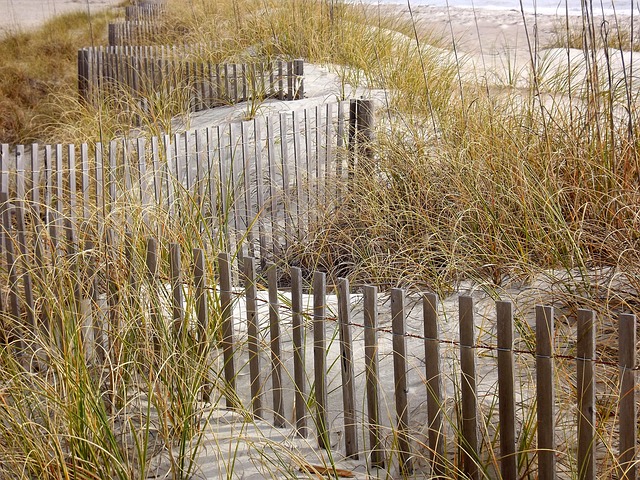Adding a privacy fence to your New Bedford home can enhance outdoor living and provide much-needed seclusion. This guide explores the benefits of such installations, offers advice on selecting suitable materials for the local climate, walks you through the installation process, covers legal permits required in Massachusetts, and provides tips for maintenance to ensure longevity and safety.
- Understanding Privacy Fence Benefits for New Bedford Homes
- Choosing the Right Material for Your Local Climate
- Installation Process: Step-by-Step Guide for Homeowners
- Legal Considerations and Permits in Massachusetts
- Maintaining Your Privacy Fence for Longevity and Safety
Understanding Privacy Fence Benefits for New Bedford Homes
Privacy fences offer numerous benefits for homes in New Bedford, MA. One of the primary advantages is enhanced security and peace of mind. By installing a fence, homeowners can create a physical barrier that limits unauthorized access to their properties, providing a safe haven for families and pets. Furthermore, privacy fences significantly improve outdoor living spaces by offering shelter from prying eyes and surrounding noise, allowing residents to enjoy their backyards without distractions.
In addition, these fences contribute to property value and curb appeal. Well-designed and maintained fences can transform an ordinary backyard into a tranquil oasis, increasing the overall attractiveness of a home. They also provide a sense of seclusion, making outdoor spaces more intimate and comfortable for social gatherings or quiet retreats. Homeowners in New Bedford can take advantage of these advantages by investing in a privacy fence tailored to their specific needs and preferences.
Choosing the Right Material for Your Local Climate
When considering privacy fence installation in New Bedford, MA, selecting the appropriate material is a crucial step that should be tailored to your local climate. The region’s weather patterns play a significant role in determining the longevity and performance of your fence. For instance, if you reside in an area prone to harsh winters and high humidity, opt for durable materials like vinyl or treated wood that can withstand these conditions without losing their structural integrity or aesthetic appeal. These options are known for their resistance to rot, mold, and pests, ensuring your privacy fence remains strong and vibrant throughout the year.
On the other hand, if you live in a milder climate with more temperate temperatures, materials like wrought iron or certain types of wood may be suitable choices. Wrought iron fences, though requiring more maintenance, offer exquisite designs and can enhance the overall curb appeal of your property. Local climate considerations are thus integral to making an informed decision that guarantees both functionality and aesthetics for years to come.
Installation Process: Step-by-Step Guide for Homeowners
Privacy fence installation involves several steps to ensure a sturdy and secure barrier around your property. Here’s a step-by-step guide tailored for homeowners in New Bedford, MA:
1. Plan and Prepare: Start by selecting the type of fence best suited for your needs and landscape. Measure the perimeter of the area you wish to fence off. Obtain any necessary permits from local authorities. Clear the site, removing vegetation or debris that could obstruct installation.
2. Marking and Layout: Using string and stakes, mark where each post will be placed. This ensures a straight and uniform fence line. Dig holes for the posts, ensuring they’re deep enough (typically one-third to half the post’s height) and wide enough (about 8-10 inches in diameter) to accommodate proper support.
Legal Considerations and Permits in Massachusetts
When installing a privacy fence in New Bedford, MA, it’s crucial to understand the legal considerations and permit requirements. In Massachusetts, homeowners must adhere to specific regulations regarding property lines, set-backs, and material types. Failure to comply can lead to disputes with neighbors or even legal repercussions. Therefore, before breaking ground, research local zoning laws and obtain necessary permits from the New Bedford building department. This ensures your project stays in compliance and avoids potential delays or penalties.
Permits are typically required for fence installations over certain heights or in specific locations. The city may also have restrictions on fencing materials, especially around historic districts or environmentally sensitive areas. Homeowners should also be aware of easements and property rights of adjacent properties to prevent any legal complications. Consulting with a local professional who understands these regulations can streamline the process and ensure your privacy fence is not only functional but legally sound.
Maintaining Your Privacy Fence for Longevity and Safety
Privacy fences are an investment, both in your property value and your peace of mind. To ensure your fence serves its purpose for years to come, regular maintenance is key. Start with inspecting it frequently for any signs of damage, such as broken boards or loose posts. Repairs should be addressed promptly to prevent further deterioration.
Cleaning your fence regularly is also crucial. Remove leaves, dirt, and other debris that can accumulate and compromise the barrier’s effectiveness. Use a soft brush or hose to gently clean the fence, avoiding harsh chemicals that could damage the material. Finally, apply a fresh coat of sealant or paint every few years to protect against the elements and maintain its aesthetic appeal.
